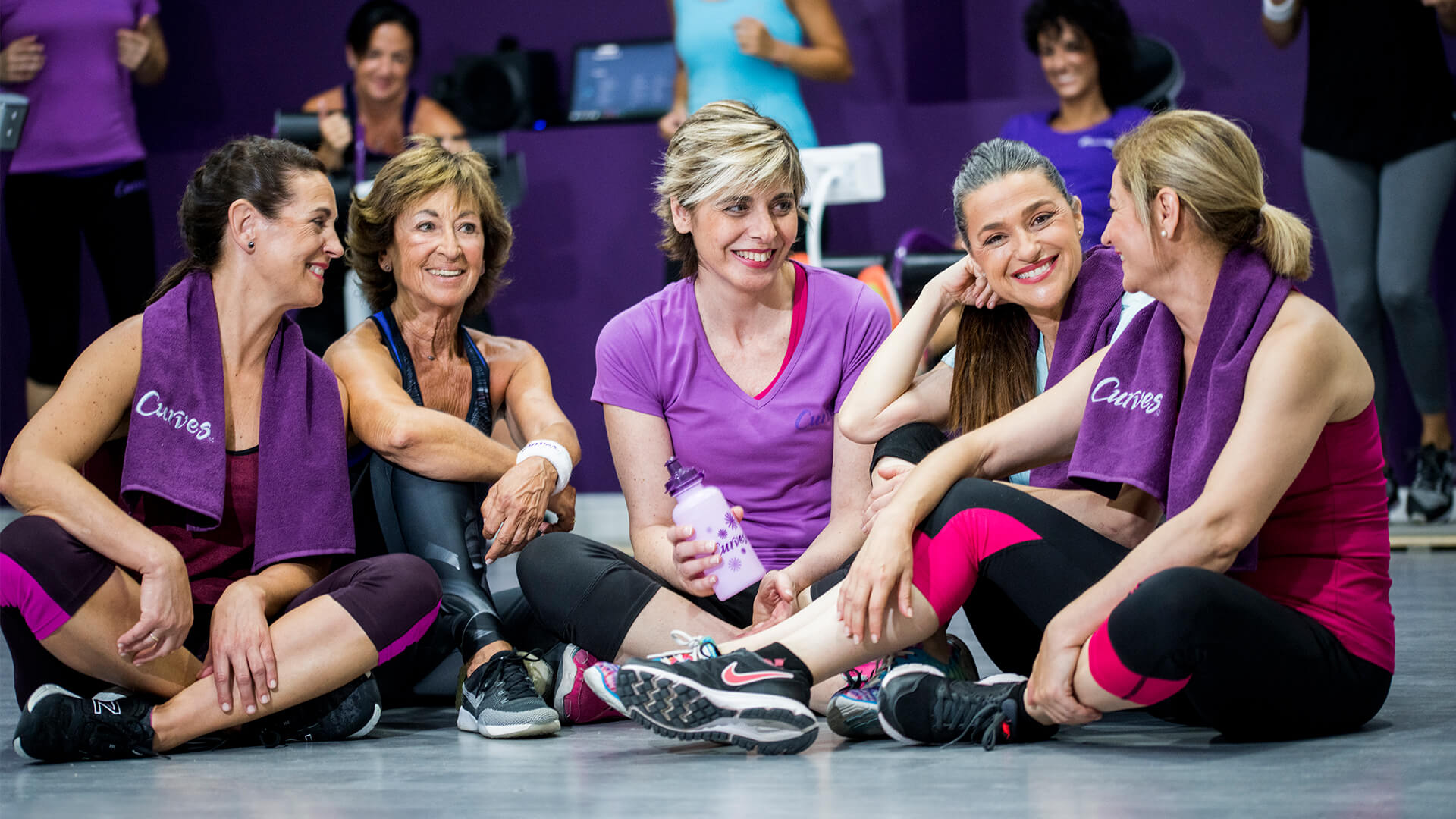
Loneliness is a growing problem in our society and can have a negative impact on physical and mental health, increasing the risk of heart disease, depression, stroke, dementia and anxiety. According to a recent NHS study, 22% of the UK population reported feeling lonely at least some of the time. But there’s good news- exercise can help fight loneliness. Science tells us that exercise and mental health are connected, and regular physical activity not only keeps us fit, but has a profound impact on our happiness. Exercise extends far beyond its physical benefits, with the ability to improve social interaction, the mind-body connection, and our mental wellbeing. To help understand how exercise can combat loneliness and provide practical tips on how to get started, we spoke with fitness expert, Joanna Dase at Curves.
1. ‘Walk and talk’ as part of your daily routine.
When it comes to combating loneliness, one simple yet effective strategy is to go for a walk and have a meaningful conversation with family or a friend. The relaxed and peaceful environment creates the perfect setting to open to each other, catch up on life, and build a stronger connection together. Not only does walking provide an opportunity for social interaction, but there are a range of physical benefits including improved energy levels, muscle endurance, cardiovascular fitness, heart rate, immunity, and enhanced mood. As it is a low intensity exercise, it can easily be incorporated into your routine to regularly combine the advantages of exercise and social interaction. Even if you can’t walk together in person every day, you can still use it as an opportunity to have a catch-up call with your loved ones and be connected virtually.
2. Foster a mind-body connection.
Loneliness can sometimes stem from within. You may feel emotional discomfort from being alone or feel as though you are alone. It could be a result of feeling burnt out from overworking or not effectively communicating your needs to loved ones. Additionally, extended periods without social interaction can contribute to these feelings of loneliness. Engaging in practices that emphasise mindfulness, such as yoga or meditation, can help develop a deeper understanding of ourselves and our needs. These exercises promote emotional regulation, encouraging us to acknowledge our emotions without judgment through exercise. As a result, we can try to identify the root cause of our loneliness and ways to address them.
3. Volunteer for active causes.
By dedicating your time and energy to charitable activities, you not only make a positive impact on the community, but also create opportunities for meaningful interactions. Whether you’re participating in fundraising walks, runs, or fitness challenges, everyone is united in working towards a shared goal. As you prepare for the event, you can join groups to engage with fellow participants, sharing experiences, training tips, and mutual support. On the day of the event, there is a collective effort to overcome challenges and reach the finish line, which serves as a powerful motivator. Ultimately, volunteering is a chance to challenge yourself physically, whilst making a positive impact in the world around you with others.
4. Get an ‘accountability buddy’.
When feelings of loneliness and depression amplify, skipping the gym or not following through with your exercise plans can further exacerbate these emotions. If you’ve never set foot in a gym before, you may avoid it due to social anxiety and fear of judgement. This can create a detrimental cycle of isolation, avoidance, and self-doubt. To combat this, talk to a friend and ask if you can work out together. Going to the gym with a friend means that you’re accountable for turning up to support your friend and have them support you. Not only can you share fitness tips and tricks, but you also have the opportunity to learn from each other. When you reach a milestone or achieve a goal, having an accountability buddy means you can celebrate your success together. On the flip side, when you’re struggling with motivation or feeling down, your accountability buddy can be there to help.
5. Work out with a personal trainer.
By working closely with a personal trainer (PT), you not only receive expert guidance on exercise techniques and proper form, but you also gain a trusted companion who understands your fitness goals and challenges. The PT-client relationship fosters a sense of accountability, motivation, and encouragement, creating a supportive environment that can directly counteract feelings of isolation. As well as this, the personalised attention from a PT ensures that your workout routine is tailored to your specific needs and preferences, making the experience more effective. By working out with a PT, you can reach your goals with a fitness professional who genuinely cares about your progress and overall well-being.
6. Join your local fitness class.
Actively participating in fitness classes, joining running groups, or becoming part of a fitness community at your local club, opens doors to meaningful connections with individuals who share similar interests and goals. Working out together fosters a sense of camaraderie, which creates a motivating support system that directly combats the feelings of isolation. The bonds formed can extend beyond workout sessions, and you can create lifelong friendships with a network of individuals who support one another.
7. Try team sports.
Team sports are not only physically challenging, but they also provide a social setting to interact with teammates. Being part of a team can forge a sense of belonging, as you train and play together to reach your shared goals. It’s a supportive network where you can rely on and support each other, both on and off the field. Whether it’s football, volleyball, dance, basketball, or any other team sport, the shared experiences, challenges, and victories strengthen your team and create lasting bonds. By connecting with a larger group, you can combat feelings of loneliness through team sports and enhance your physical fitness.
















